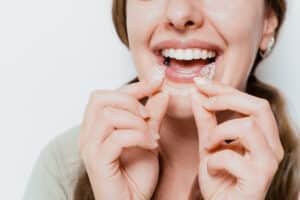Learn
Select a category to explore specific content:
Categories

Why Your Gums Bleed When Brushing — and What to Do About It
Bleeding gums while brushing or flossing can often come as a surprise to many people. In some cases, they may ignore the condition because it

Dental Emergencies: What to Do Before You Reach the Dentist
Call our office at 416-932-2222 for immediate service or Dental Emergency Services (DES) at 416-485-7121 for 24-hour emergency dental care. Dental emergencies can happen at

Midtown Smile Makeovers: 5 Treatments Young Professionals Are Booking Right Now
There is a reason Yonge and Eglinton in Toronto is often called “Young & Eligible”. Not only is this neighbourhood home to so many growing

Are You Brushing Too Hard? Why Gentle Brushing Is Better for Your Smile
It is good to be enthusiastic about oral health. We all want our smiles to be beautiful, healthy, and accompanied by fresh breath. However, your

Top 5 Reasons Midtown Toronto Professionals are Choosing Invisalign Over Braces
Your beautiful smile not only enriches your life, but it also has the potential to brighten the world around you. However, when you suppress your

Should You Brush Your Teeth at Work? Oral Care Tips for Busy Professionals
The Midtown Toronto neighbourhood of Yonge and Eglinton is populated by thousands of young professionals all working hard to climb the ladder of success and

How to Keep Gums Healthy for a Happy Smile in Five Simple Steps
When we think of a beautiful smile, images of dazzling white teeth might come to mind. Although shimmering teeth are a critical part of having

Natural Teeth Whitening Tips to Brighten Your Smile
Nothing lights up a room like a bright white smile. Not only does a happy smile make everyone feel good, but it also gives the

5 Simple Fresh Breath Tips for a Confident Smile
You can have the most charming personality, say all the right things, and wear the finest clothes, but none of it will matter in business

What to Expect at Your First Dental Visit
Many people are not sure what to expect at their first dental visit. Whether they are starting a new dental health journey, have moved to

Jaw Comfort Tips to Keep Your Smile Feeling Great
Most people understand that maintaining a healthy, comfortable smile involves a daily oral health maintenance routine, which includes brushing and flossing and regular visits to

The Best Drinks for Healthy Teeth
People often eat crunchy vegetables, nuts, leafy greens, and dairy products to help keep their teeth and gums healthy and strong. However, your beverage choices

